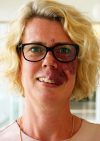Results from the project
BFUF Rapport #21 Nyfiken – Kunskapsturism som kan utveckla besöksnäringen
BFUF Play
Nyfiken
Kunskapsturism som kan utveckla besöksnäringen Allt fler erfarna, kunniga och medvetna resenärer efterfrågar upplevelser där man lär sig något och…
Erik Lundberg, project leader, doctor, researcher in marketing and director at the Centre for Tourism, University of Gothenburg
What is your research project about?
“Interest in using one’s holiday and leisure time to challenge oneself and learn something new is on the increase. Many operators, such as museums, aquariums, zoos and learning centres, offer expertise in areas such as food, nature, cultural history and technology amongst other things. These stakeholders form a large part of the hospitality sector’ business today but we feel that there is great potential to develop this further towards a more clearly defined knowledge tourism – where the reason for travel itself is to increase one’s knowledge. A knowledge tourist will have other needs and represent a new kind of demand. To create sustainable attractions with knowledge at its core requires new procedures and methods. We shall look into both of these perspectives. Our hope is to help create tourism with knowledge as its base, as well as to highlight the need for training within the tourism industry.”
What will you do?
“The project is split into three themes: Science tourism, brand and concept and the supply and consumption of knowledge tourism.”
“We shall look at how science tourism can be developed as a visitor destination at three locations: the Kristineberg Marine Research & Innovation Centre, a research and innovation centre at the University of Gothenburg, and at the Tjärnö Research Station, University of Gothenburg and also at the Sotenäs Symbioscentrum, Sotenäs Disctrict Council. Today, these receive visitors in the shape of an interested general public and schools but who desire further development in knowledge tourism.”
“For the second theme, researchers will follow the process of developing a brand or concept for knowledge tourism, from planning to implementation.”
“For the third theme, we investigate how destinations, which focus on knowledge, actually develop this knowledge, how it’s conveyed and packaged and what risks are involved in capitalizing on knowledge and science. We shall also look closer at how the visitor regards and understands knowledge.”
What challenges will you have to face?
“One challenge is coordination, there are many researchers and collaborative partners involved. This is also the first time that the Centre for Tourism has been involved in a project where researchers from all four faculties are working together which is a challenge in itself as it gives rise to many different perspectives and approaches which have to be coordinated. But it is something which really makes it an exciting project!”
What sort of benefit will the hospitality sector gain from this research?
“In order for the tourist industry to be able to develop attractive propositions within knowledge tourism then we need to know more about, and understand, what tourists are looking for, how they regard knowledge and how it’s delivered. A developed knowledge tourism might help to reduce the dependency on seasonal trade.”
Collaborating researchers
Project financed
Erik Lundberg, project leader, PhD, researcher in marketing and director at the Centre for Tourism, University of Gothenburg.
Eva Maria Jernsand, PhD, researcher in marketing and tourism at the Business Administration Institute, University of Gothenburg
Maria Persson, PhD, researcher in heritage at the Institute for Historical Studies, University of Gothenburg
Other collaborative researchers
Susanne Lindegarth, PhD, Institute for Marine Sciences at the Tjärnös Marine Laboratory
Anita Synnestvedt, PhD, Researcher in Heritage at the Institute for Historical Studies, University of Gothenburg
Tyrone Martinsson, Professor in Photography at the Valand Academy
Lena Mossberg, Professor in Marketing at the Department of Business Administration, School of Business, Economics and Law in Gothenburg
Lena Gipperth, Professor in Environmental Law at the Department of Law in Gothenburg and Director at the Centre for Sea and Society at Gothenburg University
Collaborative partners
The research stations at Tjärnö and Kristineberg, Sotenäs Symbioscentrum, National Property Board, Sweden, Uddevalla District Council and Vitlycke Museum (Region Västra Götaland’s Cultural Affairs committee).
Project facts
Project
Knowledge tourism as an attraction and resource
Research organization
Centre for Tourism, University of Gothenburg
Project Manager
Erik Lundberg
Period
2020 Apr – 2022 Mar
Amount
SEK 1,700,000





